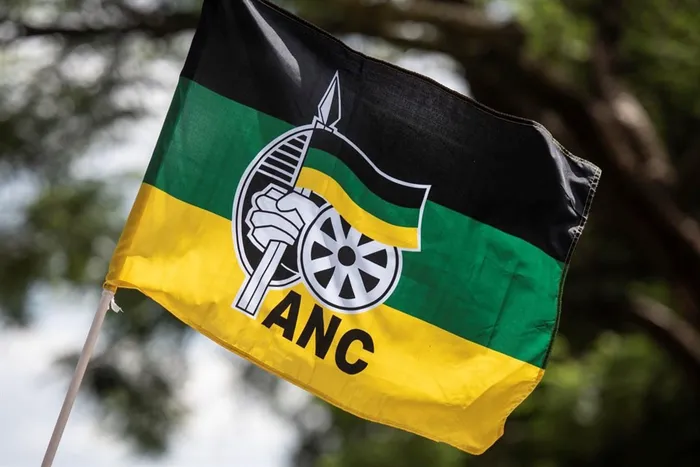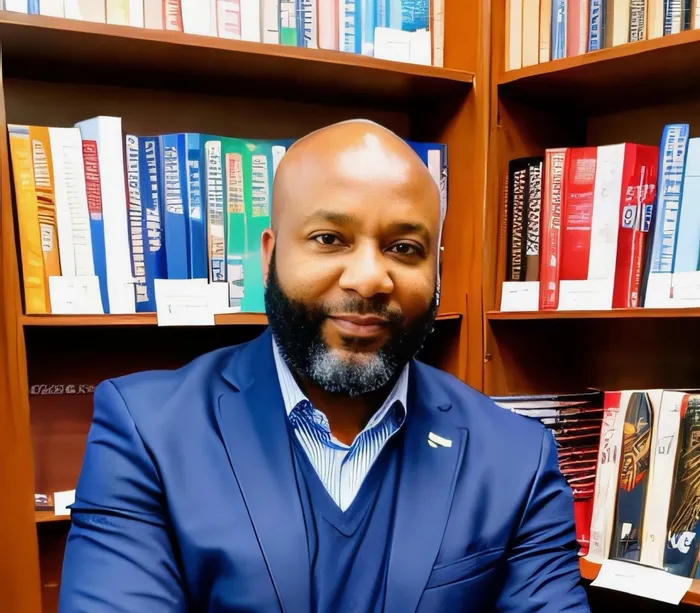
THE African National Congress (ANC), once regarded as a beacon of hope and liberation, finds itself weathering a storm of public disillusionment, mounting discontent, and a profound crisis of trust. Scandals ebb and flow, snaring presidents and premiers, metro mayors and ward councillors, and a dizzying cast of tenderpreneurs and middlemen, argues the writer.
Image: IOL / Independent Newspapers

Nco Dube, a political economist, businessman and social commentator
Image: Supplied
SOUTH Africa stands on the precipice of a new political era. This is more than the familiar narrative of post-liberation disillusionment; the African National Congress (ANC), the once-mighty vehicle of emancipation and hope, now limps under the burden of mistrust, public anger, and existential doubt.
The symptoms are everywhere: declining electoral fortunes, widespread cynicism, fractious leadership battles, and an unmistakable sense that the party’s “social contract” with the South African people lies in intensive care, some would say moments from flatlining. The stakes, for both the ANC and the nation, could not be higher.
The language of social contract theory might feel abstract, but in the South African context, it is brutally tangible. The promise was that liberation would bring dignity, prosperity, and justice. Thirty years after the first democratic elections, those promises look hollow to millions still bravely enduring squalor, joblessness, and the daily humiliations of service failures.
When the lights flicker out, taps run dry, or the police arrive three hours late, if at all. What contracts are those, if not between leaders and the led? But the contract is more than the sum of service delivery failures or even GDP figures. It was underpinned by trust: an ingrained belief, however often betrayed, that the ANC ultimately stood on the side of the people. Today, that trust is ruptured.
Survey after survey shows confidence in the ANC and politicians in general, scraping historic lows. This is not regular attrition, the ebbing of natural support that occurs after the initial enthusiasm of liberation fades. It is a collapse profound enough that every word, every gesture, and every whispered rumour about an ANC leader is greeted with volcanic suspicion.
One might hope that such an acute crisis would inspire humility and honest reckoning. Instead, a pattern has emerged: reflexive defensiveness, accusations of media conspiracy, endless references to “due process,” and the worn tactic of whataboutism, the claim that “we are no worse than the others.”
Far from reassuring the public, these postures fan the flames of mistrust. From Parliament to press conferences and talk radio, the ANC’s public defenders sound increasingly tone deaf, and at times, outright contemptuous of the public’s anger. This defensiveness grows particularly sharp whenever corruption is raised, a tragically routine occurrence in our politics.
Faced with a new scandal, the institutional reflex is to question the motives of accusers, cry foul at the timing, or trot out the tired line that “no charges have been laid.” The word “alleged” does a mountain of heavy lifting.
Such postures might have sufficed in a bygone era, when the titanic legacy of struggle leaders shielded the party from day-to-day controversies. No longer. Today’s South African public watches and listens, smartphones in hand and an ocean of cynicism in their hearts, interpreting every defensive press release as yet more evidence of rot.
The more the ANC hides behind “process,” the more the public perceives an instinct to protect itself, not the country. Let us be honest about the scale of the problem. Over three decades, almost every layer of party and state bureaucracy has been implicated.
Scandals ebb and flow, snaring presidents and premiers, metro mayors and ward councillors, and a dizzying cast of tenderpreneurs and middlemen. From the arms deal to state capture, PPE looting, Eskom and Transnet heists to Nkandla, Phala Phala and now Constantia, the scale defies imagination. In province after province, ANC rhetoric about renewal grows stale as cadres survive “stepping aside” periods only to return, emboldened, to looting perches.
Many in the ANC’s upper echelons object, “not all of us are corrupt!” That is true. But it is also beside the point. Corruption does not require entire parties to be dirty, just a critical mass of silence and risk aversion. It thrives in organisational cultures built to obscure rather than expose, to close ranks rather than open windows. What emerges is less a party than a syndicate of opportunity, locked in by networks of patronage and fear. The upshot is paralysis: everyone is protecting someone, and no one is leading.
Part of the ANC’s failure is its inability (often, outright refusal) to see itself as the public now sees it. The culture of impunity is so entrenched that what the party considers routine “comradely” behaviour of deploying legal deflections, rallying round implicated figures, most South Africans experience as open disdain.
Nowhere is this clearer than when “step aside” resolutions become revolving doors rather than exits. Or when whistleblowers and reformer voices within the ANC itself are labelled traitors to “party unity.” Unity, it seems, has become a code word for not rocking the boat, for not pursuing justice if it might disturb the consort of allies and networks upon which the party’s internal power balances rest. In the public’s eyes, this is less about due process and more about delaying justice indefinitely.
The longer the leadership argues that “the law must run its course,” the clearer it is to an angry electorate that the party will only move when its back is to the wall. It is fashionable among ANC spokespersons to insist on the sanctity of due process, the need for investigations to be completed, for “facts to emerge.”
Yet South Africans have witnessed enough commissions of inquiry, of investigation, of endless reporting, to recognise the tactic for what it is: a shield. Commissions buy time, exhaust scrutiny, and present a veneer of activity where there is none.
The public demand is not for kangaroo courts. Rather, for the party to act transparently and decisively, rather than retreat behind endless deferral.
Real step changes in trust are possible only when the ANC itself draws and enforces boundaries. Imagine the difference if every member credibly accused, pending completion of disciplinary or legal processes, were immediately removed from leadership positions and denied access to public funds. Imagine if financial disclosures, lifestyle audits, and procurement records were published proactively, rather than under duress.
Any party serious about renewal requires a culture of voluntary transparency and unflinching leadership accountability, not endless recitations of “innocent until proven guilty” inside a system where prosecution is so often stymied by capacity, interference, or sheer intimidation. Trust will only return when opaque process is replaced by public action.
It bears saying: the ANC’s defensive mode is not passive but actively alienating. Each attempt to downplay, deflect, or reframe allegations signals to South Africans that the party’s priority is not public trust, but internal management.
It is an offensive gesture, in the original sense, an affront to the desperate hopes and daily struggles of ordinary people whose lives have improved little, if at all, since 1994.This posture is not only fatal for the party; it is dangerous for democracy. When citizens lose all faith that corrupt leaders will pay any price, the path opens to despair on one hand, or populist strongmen on the other.
Dangerous actors harvest the wreckage of failed renewal to offer simple, violent alternatives. The longer the ANC persists in talking only to itself, the more space it leaves for demagogues who promise to “clean up” by fire rather than by law.
Is it too late? Has the rupture of trust between the ANC and South Africa reached a point of no return?
The honest answer: there is little time left, but history offers no certainties. Political parties the world over have rebuilt credibility after scandal if they have the courage to do so. But it requires the opposite of what we have seen: not defensive rhetoric, but proactive self-cleansing.
It means the party actively inviting in outside scrutiny, establishing independent ethics authorities, and exposing its dirtiest laundry without waiting for courts, commissions, or foreign headlines to force the issue.
The next generation must rise to demand, not request, the retirement of those tainted by corruption or implicated in cover-ups. There is no substitute for boldness: a public reckoning, a clean sweep of compromised leaders, and an end to the charade in which “unity” means protecting the worst among the best.
Real renewal is brutally hard.
It will come at a cost. Alliances will crack, careers will end, and the party may split or shrink. But the alternative is slow death, not just for the ANC, but for the legitimacy of the country’s entire political order.
What can the ANC do right now?
South Africans are not fools. They recognise that corruption is not unique to the ANC or to this country. The issue is not the presence of some bad apples; it is the refusal to clear out the rot before it infects the whole orchard.
Every day the ANC spends defending the indefensible is another day closer to irrelevance. Irreversible, final, and richly deserved. If, against the odds, the party can rediscover humility, courage, and the will to act brutally, decisively, and with a seriousness commensurate with the crisis, it might yet reclaim some trust.
But time is running out, and the ICU monitor is beeping. The next actions, not words, not commissions, but actions, will decide whether the ANC lives to write a new chapter of service, or fades into history’s shadows, remembered only for what it squandered.
The choice is theirs. The patience of the people is not.
(Dube is a political economist, businessman, and social commentator on Ukhozi FM. His views don't necessarily reflect those of the Sunday Tribune and IOL. Read more of his articles here: ncodube.blog)